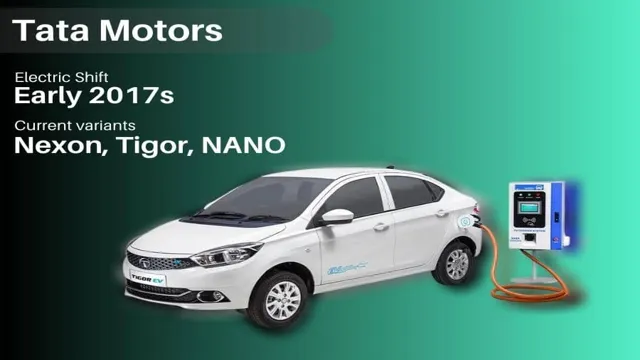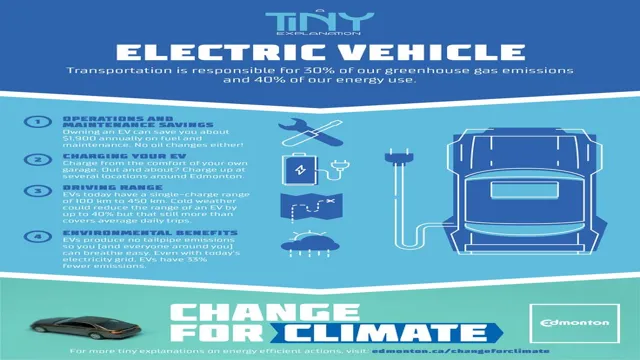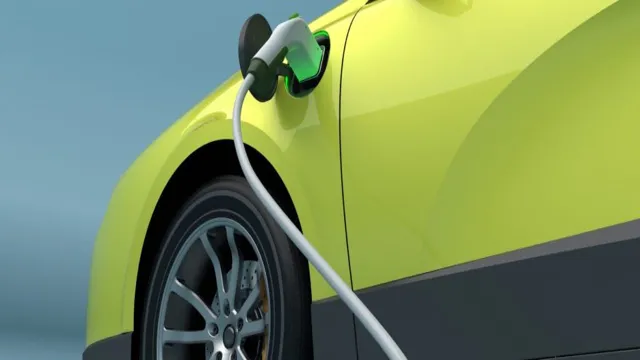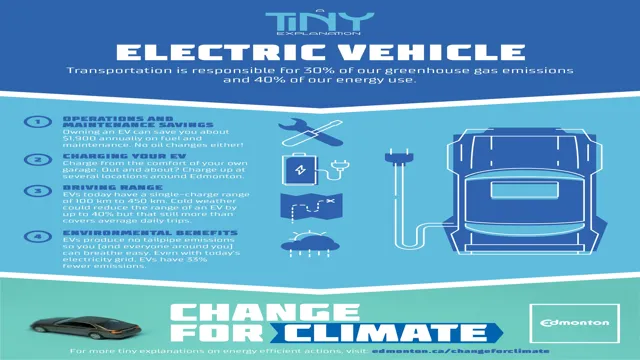Electrifying India’s Automotive Industry: Top Companies Poised to Benefit from Electric Cars
With the increasing demand for sustainable and eco-friendly solutions, the adoption of electric cars has been on the rise globally. India, being one of the largest automobile markets in the world, is also making significant strides towards electric vehicles (EVs). With the Indian government’s revised FAME II (Faster Adoption and Manufacturing of Electric Vehicles) scheme, electric cars have become more affordable, and the country is targeting 30% EVs penetration by 2030.
But with so many automobile companies joining the EV bandwagon, which ones will benefit the most from the growing Indian market? Let’s take a closer look at the current electric car market in India and which companies are poised to benefit the most from this emerging trend.
Market Analysis
In the rapidly expanding electric vehicle market in India, there are certain companies poised to benefit greatly. One such company is Tata Motors, whose electric cars have garnered great interest from Indian consumers. Additionally, Mahindra & Mahindra has already established a strong presence in the electric vehicle market with their e2o and e-Verito models.
Another company worth noting is MG which recently showcased its ZS electric SUV in the Indian market. Other global giants such as Toyota and Hyundai have also ramped up their electric vehicle offerings in India. With the government’s push towards electric mobility and the gradual shift in consumer preferences towards cleaner forms of transportation, these companies are well-positioned to thrive in the Indian market.
As the market for electric cars continues to grow, it will be interesting to see which companies will emerge as dominant players in this exciting new space.
Electric Car Market Potential in India
India’s potential to become a significant market for electric cars is enormous. With a rapidly growing population and increasing urbanization, the demand for clean transportation is at an all-time high. The Indian government has also taken steps to encourage the adoption of electric vehicles, including tax incentives, subsidies, and funding for charging infrastructure.
According to a report by IDTechEx, the electric car market in India is expected to reach $2 billion by 2025, with an annual growth rate of 37%. However, challenges such as a lack of charging infrastructure and consumer awareness remain significant barriers to widespread adoption. Despite these challenges, with the right policies and investments in place, the Indian electric car market has the potential to become one of the largest in the world, helping to reduce pollution and emissions while improving the quality of life for its citizens.
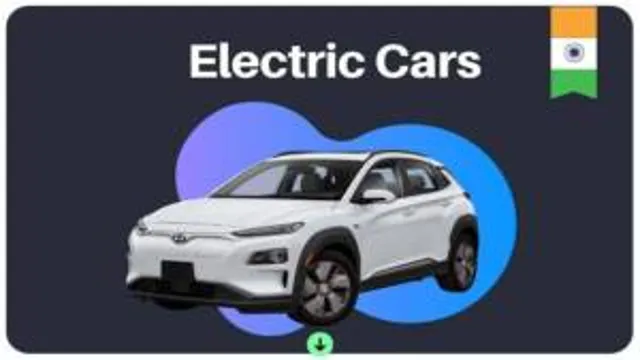
Current Market Leaders
Market analysis reveals that there are currently several market leaders across various industries. In the technology sector, companies like Apple, Microsoft, and Google dominate the market, each offering top-of-the-line products and services. In the retail industry, Amazon has disrupted the traditional brick-and-mortar model, becoming the go-to choice for millions of consumers worldwide.
Another industry that has seen significant growth in recent times is the renewable energy sector, with companies like Tesla, First Solar, and Orsted taking the lead. They are making significant strides towards creating a greener, sustainable future by providing clean energy solutions. While there are many market leaders across various industries, it is important to note that these companies are not static factors.
In the ever-changing and competitive market landscape, businesses need to continue innovating and improving to maintain their position at the top.
Government Incentives and Policies
Companies that produce electric vehicles in India are set to benefit greatly from the government’s incentives and policies promoting their use. With rising concerns about climate change and air pollution, the government is offering subsidies and tax exemptions to companies that manufacture electric vehicles and their components. This has led to a surge in interest from companies seeking to capitalize on this growing market.
Companies like Tata Motors, Mahindra & Mahindra, and Hero MotoCorp have already made significant investments in the electric vehicle industry, and are well-positioned to take advantage of the incentives offered by the government. Additionally, the government is promoting the development of charging infrastructure for electric vehicles by offering tax exemptions and other incentives to companies entering this sector. Such policies are expected to drive growth in the electric vehicle industry in India, making it one of the most promising sectors for investors to watch in the coming years.
As such, these companies that offer electric cars in India will undoubtedly benefit from the various government incentives and policies designed to promote sustainability.
Favorable Government Policies for Electric Cars
Electric cars have seen a surge in popularity in recent years, thanks in part to favorable government policies and incentives. Governments across the world have been implementing measures to encourage the use of electric vehicles, including tax rebates, subsidies, and grants. In addition, many countries have set targets to phase out the production of petrol and diesel cars entirely in the near future, spurring investment in electric car technology.
Such incentives have helped to drive down the cost of electric cars and encourage more people to make the switch, ultimately leading to a reduction in greenhouse gas emissions and a cleaner, more sustainable future. With government backing, electric cars are becoming an increasingly viable option for drivers looking to make a positive impact on the environment while still enjoying the ease and convenience of personal transportation.
Financial Incentives for Electric Car Companies
Government incentives and policies play a significant role in promoting and encouraging the use of electric cars. Many countries worldwide offer financial incentives to electric car companies, which includes tax credits, rebates, and grants. These incentives can reduce the overall cost of manufacturing electric cars, thereby making them more affordable and accessible to consumers.
For instance, in the United States, the federal government provides a tax credit of up to $7,500 for buyers of electric cars. Additionally, governments often impose regulations and standards on the automotive industry to reduce CO2 emissions. In some countries, electric vehicles are exempt from road taxes and tolls, further promoting their usage.
Such incentives encourage automakers to shift their focus towards eco-friendly vehicles, resulting in a positive impact on the environment. Consequently, governments have to balance costs, public health, and other factors to create efficient policies that incentivize electric car production.
Barriers to Entry for Foreign Companies
When it comes to foreign companies trying to enter a new market, government incentives and policies can either be a major barrier or a helpful aid. In some cases, governments might offer incentives such as tax breaks or free land to companies looking to establish a presence in their country. This can be a great way to encourage foreign investment and stimulate economic growth.
However, in other cases, government policies can be restrictive and bureaucratic, making it difficult for foreign companies to navigate regulations and paperwork. Additionally, political instability or corruption can also create risks for foreign companies, making it harder for them to establish long-term operations or ensure the safety of their employees. Overall, it’s important for companies to carefully evaluate both the potential benefits and risks of entering a new market, and to seek out advice and support from local experts and resources.
Innovative Indian Companies
As electric cars continue to gain popularity in India, there are several innovative Indian companies that stand to benefit from this trend. One such company is Tata Power, which already has a presence in the electric vehicle charging infrastructure sector. With the increasing demand for electric cars, Tata Power is well-positioned to provide the necessary charging infrastructure across the country.
Another company is Mahindra & Mahindra, which has been at the forefront of electric vehicle manufacturing in India. Their electric cars have already been well-received by consumers and are likely to see an increase in demand as the country moves towards electrification. Additionally, companies like Ola and Uber are poised to benefit from the electric car trend as they already have a large fleet of vehicles and can easily transition to electric models.
Overall, these innovative Indian companies are well-prepared to take advantage of the electric car revolution in the country and will likely see continued success in the coming years.
Homegrown Electric Car Companies to Watch
When it comes to innovative electric car companies, India is quickly becoming a hub for homegrown talent. There are a few key companies to watch out for in the country’s electric vehicle (EV) sector, including Tata Motors, Mahindra & Mahindra, and Ola Electric. Tata Motors, for example, has been working on developing electric cars for years and has already launched the Nexon EV, India’s first long-range EV.
Meanwhile, Mahindra & Mahindra is producing the e2o and eVerito, two small electric cars that are popular among city-dwelling customers. Finally, Ola Electric is not only building electric cars but is also developing charging infrastructure across India, making it easier for consumers to switch to EVs. With these innovative companies leading the way, India is poised to make a significant impact in the global EV market in the years to come.
Indian Companies Collaborating with International Brands
Collaboration between Indian companies and international brands has become increasingly common as innovative Indian companies look to expand their reach and tap into global networks. Indian companies have been working with international brands to bring new products and technologies to the Indian market, while also leveraging their expertise in areas such as software development and engineering. One example is Indian tech startup, Niramai, which has developed an AI-based breast cancer screening solution in collaboration with IBM.
Another is Indian automotive company, Mahindra, which has teamed up with Ford to develop new electric vehicles and explore new mobility solutions. These collaborations have been successful in creating new products and technologies that benefit both Indian companies and their international partners. As Indian companies continue to innovate and bring new solutions to market, we can expect to see more collaborations with international brands in the years to come.
Foreign Companies Making Moves in India
With the growing demand for eco-friendly electric cars in India, many foreign companies are making moves to tap into this emerging market. One company that is set to benefit greatly from the trend towards electric cars in India is Tesla. India has set ambitious targets for electric mobility, with a goal of having all new vehicles sold in the country to be electric by 2030.
This ambitious target means that companies like Tesla, who are already established in the EV market, are in a strong position to benefit. However, it’s not just Silicon Valley’s electric vehicle giant who is eyeing this opportunity. Companies like Nissan, Toyota, and Mahindra & Mahindra are also investing heavily in the Indian EV market.
As the market for electric cars in India continues to grow and mature, it presents an opportunity for forward-thinking companies to innovate and capitalize on this new trend.
Conclusion
In conclusion, the companies that will benefit the most from the increase in electric cars in India will be those with a strong focus on innovative technology and sustainability. This includes automobile manufacturers who have invested heavily in developing electric models and charging infrastructure, as well as companies providing renewable energy solutions and battery technology. Additionally, companies in industries such as logistics and transportation could also see significant benefits from the increased availability and efficiency of electric vehicles.
Ultimately, the future is electric, and the companies that adapt and embrace this shift will be the ones that come out on top in India’s rapidly evolving automotive landscape.”
FAQs
What are the major companies producing electric cars in India?
Some of the major companies producing electric cars in India are Tata Motors, Mahindra Electric, Hero Electric, and MG Motors.
How will the demand for electric cars in India affect the automotive industry?
The demand for electric cars in India will lead to a shift in the automotive industry towards more sustainable and eco-friendly options, providing opportunities for companies producing electric cars.
What incentives are available for consumers purchasing electric cars in India?
The Indian government is providing incentives for consumers purchasing electric cars such as reduced GST rates, tax benefits, and subsidies on electric vehicles.
What are the challenges faced by companies producing electric cars in India?
Companies producing electric cars in India face challenges such as lack of charging infrastructure, high battery costs, and limited consumer awareness about electric cars.
